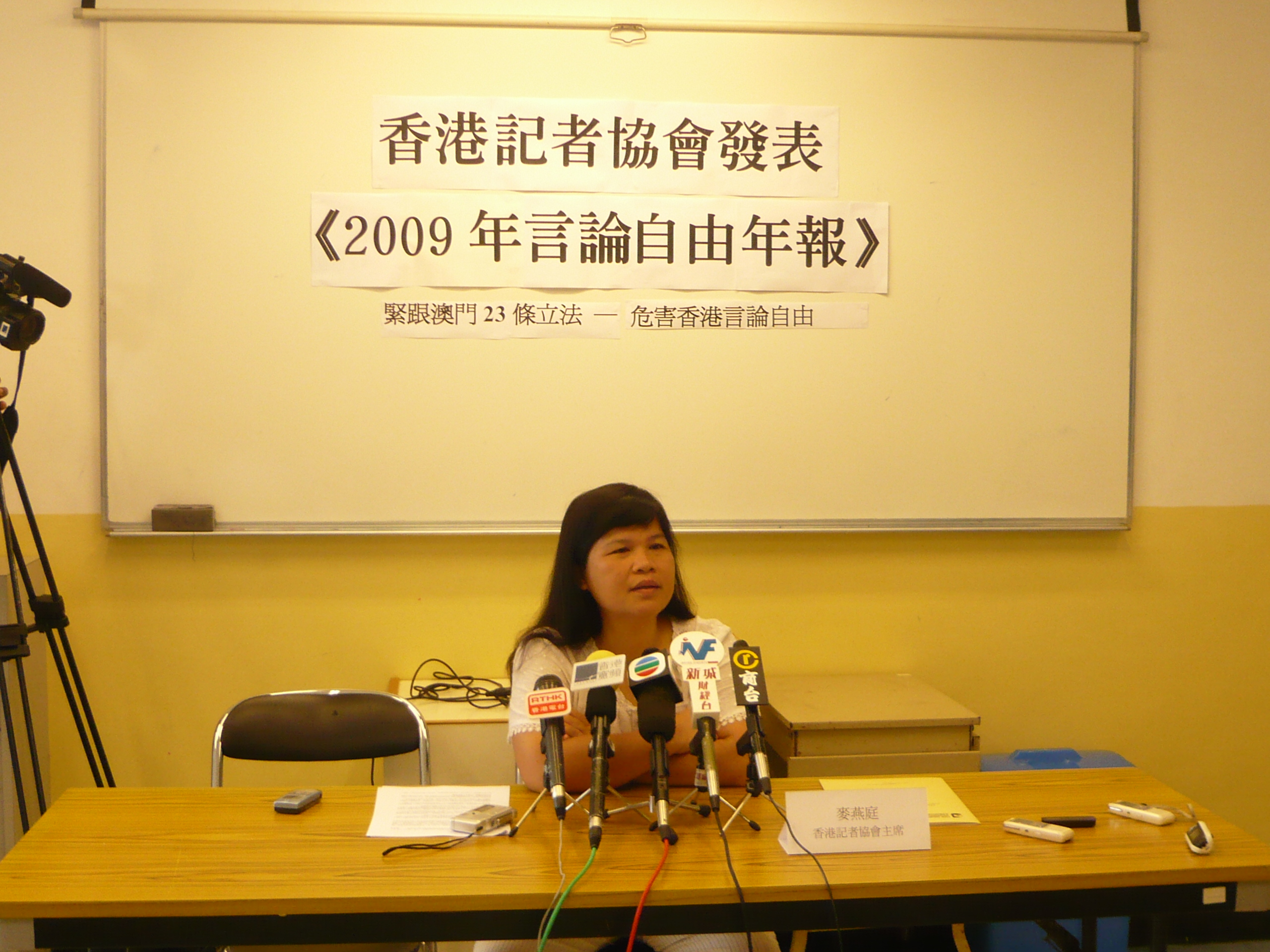The Hong Kong Journalists Association (HKJA) today releases its 2009 annual report on freedom of expression in Hong Kong. The report this year focuses for the first time on an event outside Hong Kong - the passage in Macau of national security legislation.
This issue is vital for Hong Kong, because the move puts undoubted pressure on the Hong Kong government to follow suit - possibly before the chief executive, Donald Tsang, steps down in June 2012. Hong Kong has already - in 2003 - tried to enact such legislation, but strong opposition forced the administration to withdraw the bill. One of the biggest factors in this process was the half-million strong march on July 1st 2003.
Macau's legislation was passed with little debate, just four months after a public consultation document was published. The law contains offences which in some cases are extremely broad. If they were adopted in a Hong Kong national security law, they would pose a very serious threat to freedom of expression, including press freedom.
The HKJA argues in its 2009 annual report - called "Macau Takes The Lead" - that the Hong Kong government should resist pressure to enact national security legislation. And if such legislation is enacted it should contain robust safeguards. These should include relevant provisions of the Johannesburg Principles on National Security, Freedom of Expression and Access to Information, as well as proper public interest and prior publication defences.
The report also notes that little is being done to strengthen the protection of media freedoms. The government has failed to issue a consultation document on Radio Television Hong Kong's future, it has refused to heed calls for changes to the Telecommunications Ordinance to allow greater media diversity, and nothing has been done to enact a freedom of information law to give the public a statutory right to demand government information and documents.
About the only area where the government has acted is on legislation governing indecency and obscenity. But the HKJA fears that the government may restrict freedoms in this area - in particular in dealing with internet publication. Indeed, any move to legislate on what the internet can and cannot publish may have repercussions that go far beyond the area of obscenity.
This move comes as there are growing indications of self-censorship in the media, in particular in areas that are sensitive to China. The 1989 Beijing massacre is one such area, with several organisations playing down the significance of the 20th anniversary of the crackdown in mainland China - despite a record turnout for a vigil to remember the victims. Indeed, participants in events marking the anniversary were critical of certain Hong Kong media organisations, which they accused of taking a line more akin to that of Beijing.
The five-chapter report focuses on the debate in Macau on national security legislation and its implications for Hong Kong; the radio debate in Hong Kong; the government's obscenity proposals; new China reporting rules; and the effect of the financial downturn on the media industry.
If you would like a copy of the report, you may download it from the HKJA website. Please click here for reference. (English version only, chinese version will be provided after we finish the translation)
** You may also download the chinese version of "Introduction and Recommendation" here .
